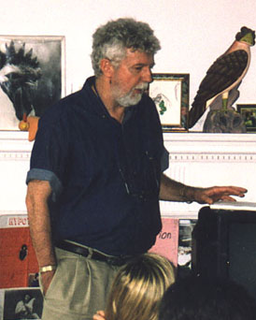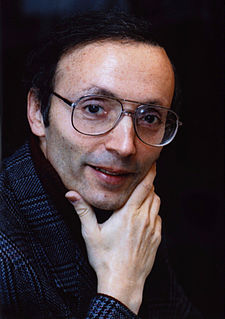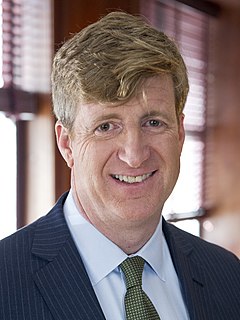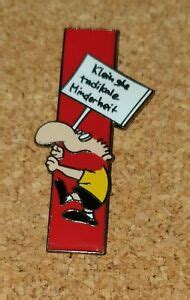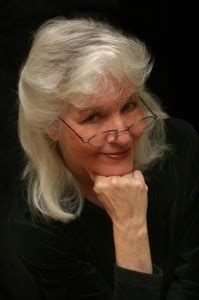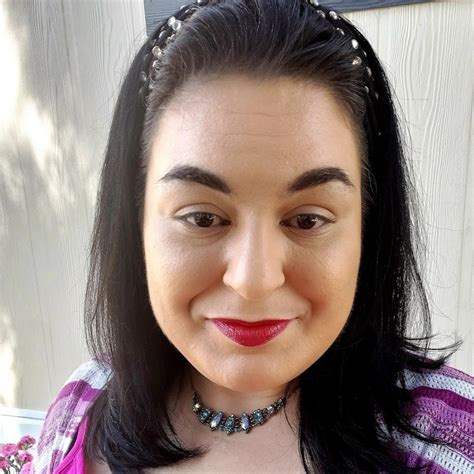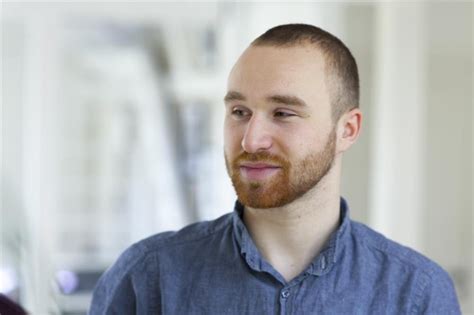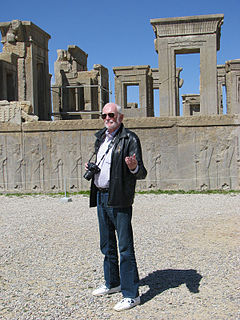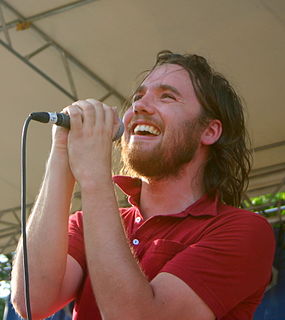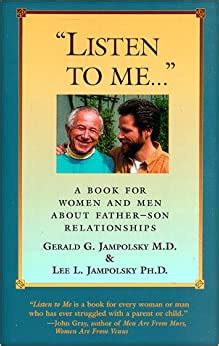Top 839 Addiction Quotes & Sayings - Page 14
Explore popular Addiction quotes.
Last updated on April 16, 2025.
This human need for mysticism – surrender to an unknown truth, union – stands at the helm of all romantic feeling. It is, in essence, the same intimacy known in a mother’s arms; in those who are deprived of the experience, the need freezes and, distorted, it can rent a life. All addiction has as its foundation skewed yearning for the same transcendence. For me, the spell of the material was broken by my brother’s death; after his suicide, all I wanted was the renewal of my connection to the intangible.
The [Burmese] government appears to be more interested in stamping out political activity than drug addiction. Very few university students on the campus could get away with engaging in political activities, but they seem to be able to get away with taking drugs. We have heard that it is very easy to obtain drugs on the university campuses.
Depression is about anger, it's about anxiety, it's about character and heredity. But it is also about something that is in its way quite unique. It is the illness of identity, it is the illness of those who do not know where they fit, who lose faith in the myths they have so painstakingly created for themselves. It is a plague - especially if you add in its various forms of expression, like alcoholism, anorexia, bulimia, drug addiction, compulsive behavior of one kind or another. They're all the same things: attempts to avoid disappearance, or nothingness, or chaos.
Man has but little heeded the advice of the wise men. He has been - fatefully, if not willingly - less virtuous, less constant, less rational, less peaceful than he knows how to be, than he is fully capable of being. He has been led astray from the ways of peace and brotherhood by his addiction to concepts and attitudes of narrow nationalism, racial and religious bigotry, greed and lust for power.
All who are caught in its seductive, tantalizing web and remain so will become addicted to its immoral, destructive influence. For many, that addiction cannot be overcome without help. The tragic pattern is so familiar. It begins with curiosity that is fueled by its stimulation and is justified by the false premise that when done privately, it does no harm to anyone else. For those lulled by this lie, the experimentation goes deeper, with more powerful stimulations, until the trap closes and a terribly immoral, addictive habit exercises its vicious control.
It is unacceptable that the way we have treated people who have become addicted in the past is by throwing them in prison. It's appropriate that we're responding now by trying to get people the treatment they so desperately need. The racial divide here is absolutely unacceptable, and we have to do much better for all people who are addicted whether they are white, black, brown, any race - the humane way to respond to addiction is in a public health fashion and by getting people the help they need.
When someone tells me that they insist on having drinks with me, and there are some cultures where sealing the deal or celebrating or having a guest in the home, it is very traditional to slam down a couple shots or whatever the local grog is. I just tell them I'm allergic, which is not a lie, you know alcoholism and drug addiction in many ways are described as an allergy of the body and the mind. So I just tell them I'm allergic and they're like, "Oh, no problem."
It turns out that dopamine is a chemical on double duty in the brain. Along with its role in motor commands, it also serves as the main messenger in the reward systems, guiding a person toward food, drink, mates, and all things useful for survival. Because of its role in the reward system, imbalances in dopamine can trigger gambling, overeating, and drug addiction - behaviors that result from a reward system gone awry.
The moment we shake our addiction to narrative and give up our strong-headed intent that language must say something "meaningful," we open ourselves up to different types of linguistic experience, which could include sorting and structuring words in unconventional ways: by constraint, by sound, by the way words look, and so forth, rather than always feeling the need to coerce them toward meaning.
No-strings relationships have helped cure me of love addiction. All my life I've been in long-term monogamous relationships. I had to break that pattern by not allowing myself to have a relationship for a year, stopping myself from committing to men. I haven't been celibate. I've had lots of dates and lots of sex, but I haven't been pushing to turn a date into a relationship. This has been a huge thing for me.
However, there probably is a slight connection between the high-wire, super sensitivity, open to everything and too much, and slightly fragile soul of the artist and the need to self-medicate, which can lead to bad trouble either in drugs, or alcohol. So it's not that there's no connection, it's just that we can't make too much of it because it isn't the addiction that's the issue, it's the fragility of some people who do artistic work, who end up in rehab somewhere or other.
When we hunt or fish, we deliberately kill a defenseless being who wishes us no harm. This is a direct violation of the First Precept. It is absolutely forbidden to Buddhists. As to eating meat, we know that the only way we can obtain it is for an animal to be killed. Therefore, when we eat meat, it is our intent that an innocent animal should die to satisfy our addiction to flesh. And that underlying intention, no matter how well hidden behind a smokescreen of rationalizations will block the growth of compassion and create negative karma.
So often with beginning writers, the story that they want to start with is the most important story of their life - my molestation, my this, my horrible drug addiction - they want to tell that most important story, and they don't have the skills to tell it yet, so it ends up becoming a comedy. A powerful story told poorly becomes funny, it just makes people laugh behind their hands.
Life is a series of baby steps along the way and if you add up these tiny little steps you take toward your goal, whatever it is, whether it's giving up something, a terrible addiction or trying to work your way through an illness. When you total up those baby steps you'd be amazed over the course of 10 years, the strides you've taken.
We have turned doctors into gods and worship their deity by offering up our bodies and our souls - not to mention our worldly goods. And yet paradoxically, they are the most vulnerable of human beings. Their suicide rate is eight times the national average. Their percentage of drug addiction is one hundred times higher And because they are painfully aware that they cannot live up to our expectations, their anguish is unquantifiably intense. They have aptly been called 'wounded healers.' " ~ Barney Livingston, M.D. (Doctors, 1989)
Opioid replacement therapy is the standard evidence-based model to treat people with acute opioid addiction, and that is unassailable according to every research study that's been done. If that is the evidence-based model, then why can't we meet the large-scale need that's out there? We can't because one, there aren't enough doctors who can prescribe [drugs like methadone], and two, there are these artificial limits [by insurers] on who doctors can prescribe to.
Sometimes, in the course of my hopeless quest, I would pick up and dip into one of the ordinary books that lay strewn around the castle. Whenever I did, it seemed so insipid and insubstantial that I flew into a rage and hurled it at the wall after reading the first few sentences. I was spoilt for any other form of literature, and the mental torment I endured was comparable to the agony of unrequited love compounded by the withdrawal symptoms associated with a severe addiction.
The disease concept of homosexuality as with the disease concept of all so-called mental illnesses, such as alcoholism, drug addiction, or suicide conceals the fact that homosexuals are a group of medically stigmatized and socially persecuted individuals. ... Their anguished cries of protest are drowned out by the rhetoric of therapy just as the rhetoric of salvation drowned out the [cries] of heretics.
I learned early on that war forms its own culture. The rush of battle is a potent and often lethal addiction, for war is a drug, one I ingested for many years. It is peddled by mythmakers- historians, war correspondents, filmmakers, novelists, and the state- all of whom endow it with qualities it often does possess: excitement, exoticism, power, chances to rise above our small stations in life, and a bizarre and fantastic universe that has a grotesque and dark beauty.
A "snapshot" feature in USA Today listed the five greatest concerns parents and teachers had about children in the '50s: talking out of turn, chewing gum in class, doing homework, stepping out of line, cleaning their rooms. Then it listed the five top concerns of parents today: drug addiction, teenage pregnancy, suicide and homicide, gang violence, anorexia and bulimia. We can also add AIDS, poverty, and homelessness. . . . Between my own childhood and the advent of my motherhood--one short generation--the culture had gone completely mad.
Music is a spiritual expression of what's in your heart. Music as a way of getting rich is a pretty new thing, and I often wonder if the mega-bucks glitzy atmosphere is making the quality of music suffer. You have to work really hard to get around that and remember why you're in it in the first place: because you have to be. It's like an addiction. You can't go a day without picking up your guitar. To me, the only commercial goals that are really valid are, 'Boy, I wish I didn't have to go to work. I wish I could do this all the time.'
Of what use is the universe? What is the practical application of a million galaxies? Yet just because it has no use, it has a use - which may sound like a paradox, but is not. What, for instance, is the use of playing music? If you play to make money, to outdo some other artist, to be a person of culture, or to improve your mind, you are not really playing - for your mind is not on the music. You don't swing. When you come to think of it, playing or listening to music is a pure luxury, an addiction, a waste of valuable time and money for nothing more than making elaborate patterns of sound.
Agency, or the power to choose, was ours as spirit children of our Creator before the world was. It is a gift from God, nearly as precious as life itself. Often, however, agency is misunderstood. While we are free to choose, once we have made those choices, we are tied to the consequence of those choices. We are free to take drugs or not. But once we choose to use a habit-forming drug, we are bound to the consequences of that choice. Addiction surrenders later freedom to choose.
Addiction is when you fall in love with a drug instead of a child or a lover and the learning that takes part in that part of the brain is designed by evolution to get us to persist despite negative consequences to do what we need to do - because I don't know anybody who could survive a relationship or parenting if not for the ability to persist despite negative consequences. The problem is when that gets misdirected to a drug and then you can find yourself in some very negative and potentially deadly situations.
We did decide that every addict in this film, Warning: This Drug May Kill You, would be someone who started out with a prescription for an opioid from a doctor. The story that hadn't been told is that the vast majority - somewhere around 80 percent - of current heroin users began with an addiction to prescription opioids. So as much as people might want to look at this and say, 'Oh this is really a heroin problem,' yes, it is a heroin problem, and no one is saying differently, but it starts more often than not with a prescription.
People say what distinguishes us from the animals is that we think. Well, then why the hell don't we extend some compassion to those under tremendous duress? There's this whole idea that you work really hard so you can deaden your soul to the universe and enjoy yourself only in ways the Sierra Club will let you. But what about enjoying yourself by getting into the whole melee of poverty and racism and violence and murder and drug addiction? Get in there, roll up your sleeves, and do something! Nobody does it.
Our growing addiction to the Internet is impairing precious human capacities such as memory, concentration, pattern recognition, meaning-making, and intimacy. We are becoming more restless, more impatient, more demanding, and more insatiable, even as we become more connected and creative. We are rapidly losing the ability to think long about any- thing, even those issues we care about. We flit, moving restlessly from one link to another.
I can pretty much guarantee that you will at some point find yourself doing something that at one point you swore you'd never do. You'll do it for the sake of getting high, either directly or indirectly. Trust me. It will happen. You might think you know yourself better than anyone, but you have yet to become acquainted with your addiction. It will introduce itself in ways that you never thought were possible.
Well, I know from some of my own experience, and many of my friends' experiences, when going through that sort of program. The whole addiction game really forces you to focus on what brings you there and accept the only way out. So once you really put this focus on getting better and figuring out what your flaws are, that's what brings you back. I think she could've been more reckless and shown up earlier, but I wasn't really available to come back.
Drug addiction is tearing our communities and our country apart, and until we decide we're going to think differently about it, until we decide that we're going to invest as a country in prevention and treatment, until we decide that as individuals we're going to step up and do our part to address this epidemic, we're not going to solve this.
Don't we get it? To put our arm around someone who is gay, someone who has an addiction, somebody who lives a different lifestyle, someone who is not what we think they should be... doing that has nothing to do with enabling them or accepting what they do as okay by us. It has nothing to do with encouraging them in their practice of what you or I might feel or believe is wrong vs right.It has everything to do with being a good human being. A good person. A good friend.
Jesus Himself has already paid the price for your sins, so stop condemning yourself! Today, when you look into the mirror, what do you see? Do you see yourself trapped in all your failings, mistakes, and sins? Or do you see what God sees? My dear friend, when God sees you today, He sees Jesus. Use your eyes of faith and believe that as Jesus is, so are you. In God’s eyes, you are righteous, you are favored, you are blessed, and you are healed. You are freed from all sin, all pangs of guilt, all forms of condemnation, and every bondage of addiction!
The pleasures of love are for those who are hopelessly addicted to another living creature. The reasons for such addiction are so many that I suspect they are never the same in any two cases. It includes passion but does not survive by passion; it has its whiffs of the agreeable vertigo of young love, but it is stable more often than dizzy; it is a growing, changing thing, and it is tactful enough to give the addicted parties occasional rests from strong and exhausting feeling of any kind.
Social media puts us inside our phones and our computers and our headphones, and we're not connecting so much with our outside environment. Even when people go to the Grand Canyon they're more concerned about the selfies than actually looking at the canyon. I see it with my own kids - the addiction to needing things fast, never pausing to just see what's around us and connect with our fellow human beings in real time.
We're vulnerable to repeating history, especially if we don't know what's driving us. For example, it may be a family tradition to marry someone with addiction problems, or who is an injured bird in need of caretaking. Or, you may be drawn to guys who remind you of your distant, unavailable father -- or your ill-tempered mother -- with the unconscious belief that you can take an old story, and through the power of your love, give it a new, happy ending.
Here's how I became myself: mess, failure, mistakes, disappointments, and extensive reading; limbo, indecision, setbacks, addiction, public embarrassment, and endless conversations with my best women friends; the loss of people without whom I could not live, the loss of pets that left me reeling, dizzying betrayals but much greater loyalty, and overall, choosing as my motto William Blake's line that we are here to learn to endure the beams of love.
Even if nonpolluting power were feasible and abundant, the use of energy on a massive scale acts on society like a drug that is physically harmless but psychically enslaving. A community can choose between Methadone and "cold turkey"-between maintaining its addiction to alien energy and kicking it in painful cramps-but no society can have a population that is hooked on progressively larger numbers of energy slaves and whose members are also autonomously active.
I look at the way that my kids interact with technology, and it becomes a mirror to the ways in which I myself interact with technology. I can see the ways in which that addiction and compulsion starts to settle in on them, and it's much more unnerving to see it in them than it is to experience it myself.
Science is now documenting that it's not the objects of meditation that are important, it's the process of paying attention to them - the attending - that actually influences the organism in a whole range of different ways. The brain changes significantly enough to impact thought, emotion, and other biological functions. Today, people recognize that they're not going to find well-being from the outside, or from a pill; they're going to find it by looking inside. All the suffering, stress, and addiction comes from not realizing you already are what you are looking for.
For a decade Americans have been steeped in the rhetoric of "zero tolerance" and the faith that virtually all problems from drug addiction to lousy teaching can be solved by pouring on the punishment. Even without a Commander in Chief who pledges to rid the world of evildoers, smoke them out of their holes and the like, we would be vulnerable to the temptation to brush aside frustrating complexities and relieve intolerable fear (at least for the moment) by settling on one or more scapegoats to crush. To imagine that trauma casts out fantasy is a dangerous mistake.
Sit down at ten o'clock in the morning and write anything that comes into my head until twelve. One of the few things I've discovered about writing is to form a habit that becomes an addiction so that if you don't put something down on paper every day, you get really mean and awful with withdrawal symptoms, and your wife and your dog and your kids are going to kick your ass until you get back to it because they can't bear you in that state of mind.
Punishment by definition isn't going to help. So what you need to do is to help people to change and recover is to help them find different areas of passion and help them find better ways of coping. Because about 50 percent of people with addiction have a preexisting mental illness, about two-thirds have had some type of severe trauma during childhood, and they are not using to the point where they're risking their lives because it's fun. They're doing something to help them cope.
Crack in the early 1980s or mid 1980s I'm sorry is that one of the worst myth is that one hit and you're addicted for life. We saw that in 1980s and we're seeing it again with methamphetamine today, one hit and you're addicted and it simply not true, addiction requires work not the people should go out and experiment or do these themselves but the fact is that's a myth and the concern is that, it's dangerous because when people perpetuates that myths and then when young people are people actually try methamphetamine or crack cocaine and find that, that doesn't happen to them.
People don't get that being a musician is a job, they don't get what the work takes. And that's just because you're living a dream, so everyone who's observing it from the outside can't really empathize with how much work it is because you're fortunate. And it's a kind of competition with yourself to stay away from all of the excess, whether it's booze or drugs or just the late nights with the addiction to watching the sun rise in some weird part of the world. But when you meet the other musicians, there's generally a spiritual exhaustion that you connect with.
My girlfriend loves to eat chocolate. She's always eating chocolate. And she likes to joke she's got a chocolate addiction. You know, she'd be like keep me away from those chocolate bars, I'm addicted to them. And it's really annoying. So one day I put her in the car and I drove her downtown and I pointed out a crack addict. And I said you see that honey? Why can't you be that skinny?
To limit yourself to a label of "alcoholic" is masochistic and false if you have awakened a deeper spiritual identity within and have come to know your true self as unconditioned pure awareness. This doesn't mean that recovering alcoholics don't have to be concerned with relapsing, they must always remain vigilant. The power of addiction should not be underestimated. This exercise in vigilance can become a spiritual tool of liberation as well. Always being aware of choosing between real happiness and false happiness is also the discrimination required to attain enlightenment.
I brought something back from those experiences [with drugs] which made me softer, open to other ideas. And I've learned from listening to other people talk about their experiences, from listening to Bill Hicks or reading Terrence McKenna or Aldous Huxley and Timothy Leary. But there's always some dumb cop out there who says "We don't need another legal drug and there's psychological addiction and blah blah blah."
How does the [New York] Times treat White pathology? They reported an epidemic of heroin addiction in the Philadelphia suburbs. which included emergency admissions and overdoses; these White people in the suburbs were doing heroin like it was going out of style. I counted the words: the article consisted of 200 words. "Heroin Epidemic" in the back section. Out here in California, the typical drug addict is a housewife or suburban White woman.
I went public with the alcoholism, very early on... the early '70s. Mercedes McCambridge, the actress, I think was the first recognizable person that went before Congress and talked about it, and I thought that was a good idea, to take some of the stigma away from it and say "Normal, average people can fall prey to it." So it's been public for me. I did a movie about an alcoholic. And today, you're nobody unless you've been to rehab. It seems like everybody has some kind of an addiction.
So it persists, for many of us, hunger channeled into some internal circuitry of longing, routed this way and that, emerging in a thousand different forms. The diet form, the romance form, the addiction form, the overriding hunger for this purchase or that job, this relationship or that one. Hunger may be insatiable by nature, it may be fathomless, but our will to fill it, our often blind tenacity in the face of it, can be extraordinary.
Reading was like an addiction; I read while I ate, on the train, in bed until late at night, in school, where I'd keep the book hidden so I could read during class. Before long I bought a small stereo and spent all my time in my room, listening to jazz records. But I had almost no desire to talk to anyone about the experience I gained through books and music. I felt happy just being me and no one else. In that sense I could be called a stack-up loner.
For years I was so busy building walls I did not see I was imprisoning myself behind them, and did not recognize this pattern as being addiction. My addictive thinking and behavior became the bars of my cell. Denying feeling empty inside, I constantly looked for new things to acquire, people to be around, substances to take, and new goals to achieve in order to feel better about myself. Over the last four decades I have focused on healing my addictive mind and helping others do the same.
I think the addiction stuff, because I was already sort of outed in my family as a sexual person: as a sexually-adventurous and sexually-conflicted person and sexually-driven person. They already knew that about me. They knew that about me when I was eleven. My parents very consciously tried to provide an environment that would protect me from becoming a drug addict.
One thing that the white man can never give the black man is self respect. The black man in the ghettos, have to start self correcting his own material moral, and spiritual defects, and evil. The black man need to start his own program to get rid of drunkenness, drug addiction and prostitution. The black man in America has to lift up his own sense of values.
Right now we have millions of people in our country who are suffering in isolation, thinking that they are the only ones who are dealing with drug addiction, who don't realize that on their own block there are other people and families. They think they're alone and they think they're going to be judged and they don't want to talk about it. But when people do come forward and share their stories it's incredibly liberating, and it gives other people permission to tell their stories too.
Our president's latest energy initiative was to go to Saudi Arabia and beg King Abdullah to give us a little relief on gasoline prices. I guess there was some justice in that. When you, the president, after 9/11, tell the country to go shopping instead of buckling down to break our addiction to oil, it ends with you, the president, shopping the world for discount gasoline.
I awoke from The Sickness at the age of forty-five, calm and sane, and in reasonably good health except for a weakened liver and the look of borrowed flesh common to all who survive The Sickness... When I speak of drug addiction I do not refer to keif, marijuana or any preparation of hashish, mescaline, Banisteriopsis caapi, LSD6, Sacred Mushrooms or any other drugs of the hallucinogen group... There is no evidence that the use of any hallucinogen results in physical dependence.
I examined my Liberalism and found it like an addiction to roulette. Here, though the odds are plain, and the certainty of loss apparent to anyone with a knowledge of arithmetic, the addict, failing time and again, is convinced he yet is graced with the power to contravene natural laws. The roulette addict, when he invariably comes to grief, does not examine either the nature of roulette, or of his delusion, but retires to develop a new system, and to scheme for more funds.











